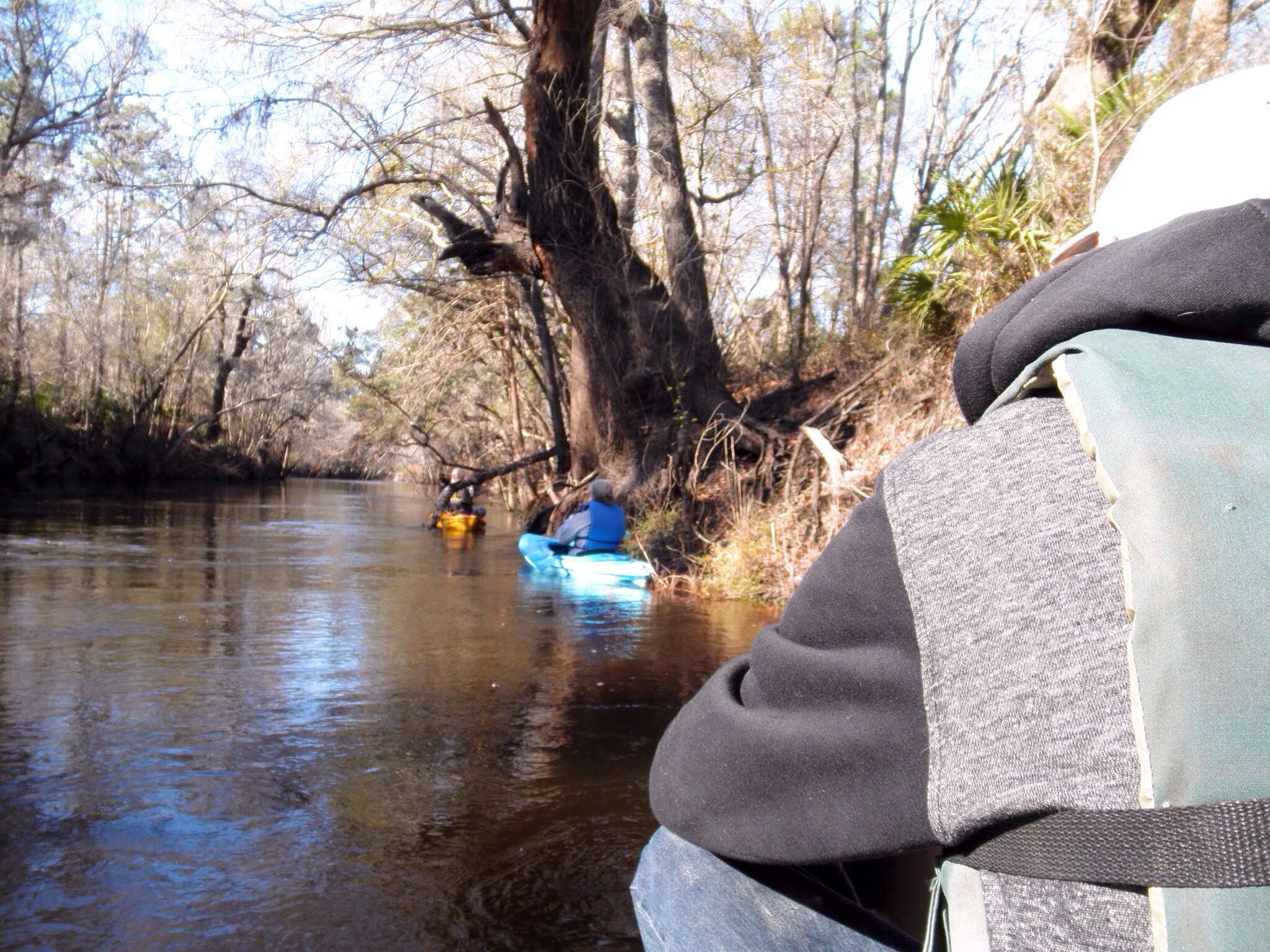 Georgia’s environment regulators urged keep hog waste out rivers.
Georgia’s environment regulators urged keep hog waste out rivers.This article is by Jennette Gayer who work with Environment Georgia Advocate.
Georgia’s Environmental Regulators have proposed serious rollbacks to existing rules that protect Georgia’s waterways from pollution created at large industrial hog operations. At a public hearing held by the Enviornmental Protection Division on October 25th, 2013 Environment Georgia’s State Advocate Jennette Gayer offered the following as public testimony.
“Water quality in Georgia will continue to suffer if the swine and hog threshold is increased from 3000 to 5000 animal units as proposed, and those facilities are not required to obtain individual National Pollution Discharge Elimination System permits (NPDES). If we know – and we do know based on historic examples – that these operations can discharge to and impair waters, why is the state making it easier for these operations to function with less oversight?
In addition to being charged with regulating CAFOs, EPD is also charged with assessing the water quality of our state’s waterways, identifying the impairments, and where impairments exist – addressing those problems to clean up the streams and creeks Georgians fish in, swim in and drink from.
I want to provide a few quick examples of water segments and reaches where permitted swine operations have been determined by EPD studies to be negatively affected by animal production facilities. I’ve pulled this information from Georgia EPD’s 2012 305(b)/303(d) List Documents, Total Maximum Daily Load (TMDL) Implementation Plans, and permitting data.[1]
Seven swine operations that had individual NPDES permits were immediately upstream or adjacent to state waters in the Savannah, Withlacoochee, Alapaha, Ogeechee, Canoochee, Oconee and Ocmulgee basins that do not support their designated use. The designated uses of these streams is fishing, and the primary reason for impaired waters is fecal coliform contamination, low dissolved oxygen levels, or non-point sources. In these watersheds, that fecal coliform and non-point sources are typically associated with agricultural operations.
Rather than rolling back safeguards for Georgia’s waterways we should be investigating these examples of pollution near existing Hog CAFO’s and working to solve them. I urge you to act in the best interest of Georgia’s waterways and not move forward with this rule change.”
[1] Georgia Water Quality Standards are connected by three components. Every water body in Georgia has one of six designated uses: fishing, drinking water supply, recreation, coastal fishing, wild river, and scenic river. And each of those designated uses must meet specific water quality criteria (such as dissolved oxygen or bacterial levels). Finally, the Clean Water Act has an anti-degradation component which is designed to protect existing designated uses and water quality. In other words, water quality is not allowed to degrade and threaten the designated use. And a downgrade in designated use “is prohibited if it would remove protection from any existing use.” (River Network)
EPD is required by the Clean Water Act to assemble a list of creeks, streams, rivers and lakes that do not meet water quality standards. EPD uses the list – which is created every two years – to target areas for restoration and to remove water bodies from the list (de-list) where water quality has improved.
If a water body is impaired and the designated use is threatened, EPD can place the water body on the 305b/303d list of waters. EPD can develop plans – such as a Total Maximum Daily Load (TMDL) – to improve water quality. Furthermore, the data can help EPD assess the state of a specific water body that is or might be affected by a new or renewed National Pollutant Discharge Elimination System (NPDES) permit, water withdrawal permit, or other permit that might affect designated uses and water quality standards.
-CLG
 The WWALS outing was location in Statenville, Georgia DNR boat ramp on the Alapaha river. The water level @ the time of the outing was around 9 ft, but the river was within the backs. But the weather was sunny but cool day with a moderate wind. So the participants for this outing Continue reading
The WWALS outing was location in Statenville, Georgia DNR boat ramp on the Alapaha river. The water level @ the time of the outing was around 9 ft, but the river was within the backs. But the weather was sunny but cool day with a moderate wind. So the participants for this outing Continue reading  The WWALS outing was location in Statenville, Georgia DNR boat ramp on the Alapaha river. The water level @ the time of the outing was around 9 ft, but the river was within the backs. But the weather was sunny but cool day with a moderate wind. So the participants for this outing Continue reading
The WWALS outing was location in Statenville, Georgia DNR boat ramp on the Alapaha river. The water level @ the time of the outing was around 9 ft, but the river was within the backs. But the weather was sunny but cool day with a moderate wind. So the participants for this outing Continue reading 



